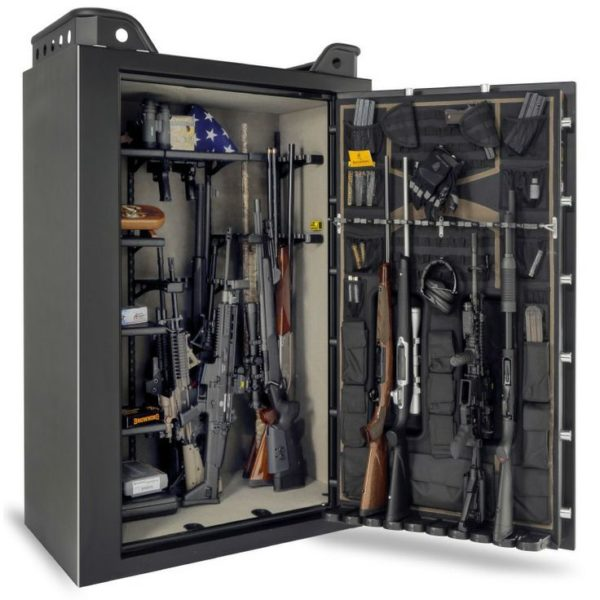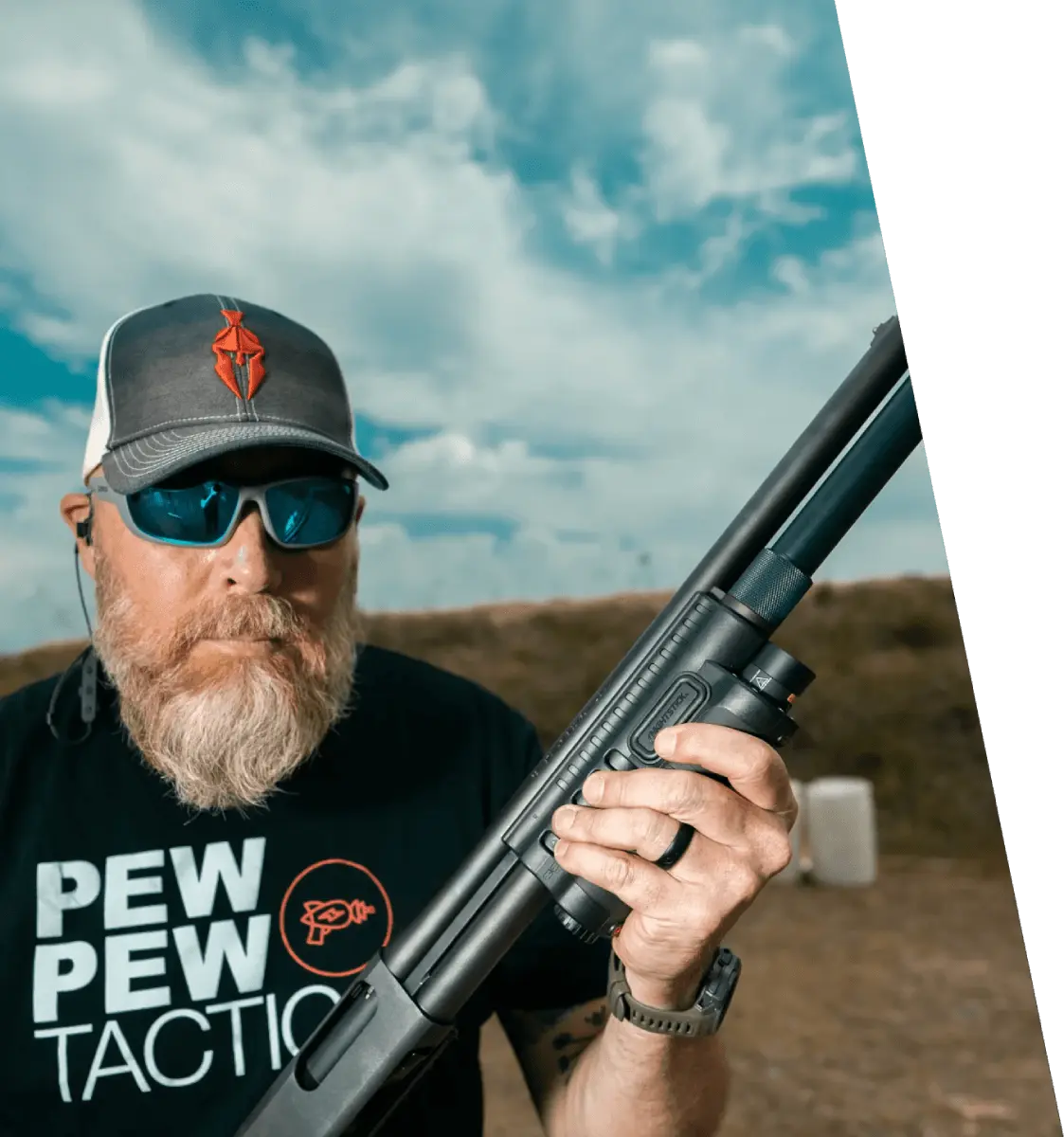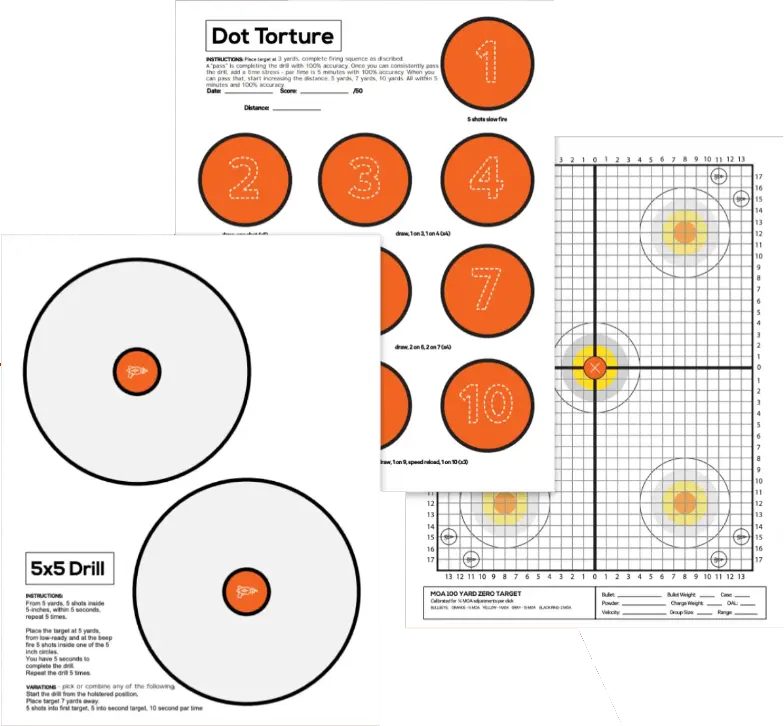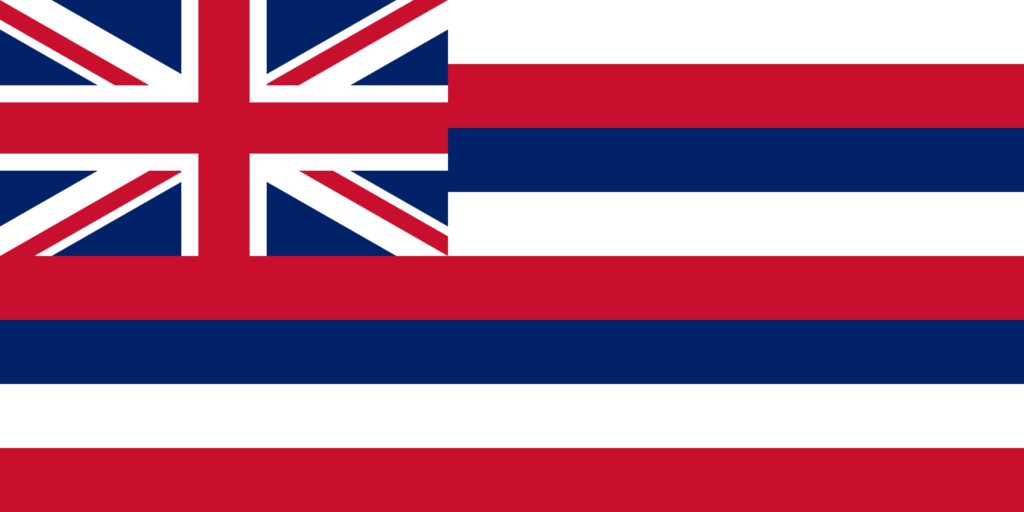
How to buy a handgun
Like some of the less gun-friendly states in the US, Hawaii has a few hoops you’ll have to jump through before you can purchase a firearm, with handguns being slightly more difficult to purchase than long guns. In order to purchase a handgun, you must:- Be 21 or older;
- Provide ID; and
- Have a “permit to acquire”
Asking for permission
To buy a firearm, you’ll need a purchase permit, known as a “permit to acquire”. Getting the permit to acquire itself involves a couple steps as well, and is required for all firearms, regardless of whether the firearm is an antique, or even if it is not usable or serviceable! Our extra observant readers will also notice that it is a “permit to acquire”, and not just a purchase permit. That’s because you need the permit beyond just buying a firearm from your local gun store or even from a private seller. If you ever want to take ownership of a handgun, whether it is through a sale, a gift, or if it is passed down from family members, you are required to have a permit to acquire. Once you decide you’re ready to jump through the hoops of getting a firearm to exercise your Second Amendment rights, you will need to head to your local police station in the county where you live, where you work, or where you are temporarily living (apartment, etc.), and apply with the chief of police in person. To actually get a permit to acquire, you must:- Be 21 or older;
- Be a US citizen;
- Provide the name, address, and telephone number of the person transferring the firearm to you (the seller, if you are purchasing the firearm);
- Sign a mental health waiver;
- Sign a medical information waiver;
- Agree to a background check;
- Provide an original hunter’s education card; and
- Provide documentation of proof of US citizenship, if you were born outside the US.
- Are a fugitive from justice or prohibited from possessing or controlling firearms or ammo under federal law (well, yeah);
- Are under indictment, or have been convicted of a felony, crime of violence, or illegal sale of drugs;
- Are or have been under treatment or counseling for addiction to, abuse of, or dependence upon any dangerous, harmful, or detrimental drug, intoxicating compounds, or liquor;
- Have been acquitted of a crime on the grounds of mental disease or disorder;
- Is or have been diagnosed with behavioral, emotional, or mental disorders; or
- Are the subject of a restraining order.
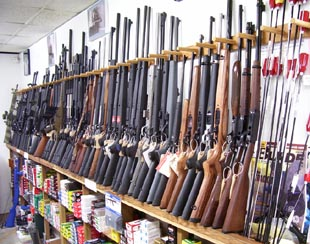
Pistols only
Specifically relating to handguns, when applying for a permit to acquire, if you do not have a hunter’s education card, you can provide your Handgun Safety Training Course Affidavit instead, which should be provided by any handgun or firearms training course taken in the state. You’ll also need to be careful when filling out your permit to acquire application if you are looking to get a handgun because you need to list the specific make, model, caliber, type, barrel length, and the serial number of the handgun you plan on purchasing (or will be receiving). Finally, you need to have a separate permit to acquire for each handgun you plan to receive (from a transfer or a sale), so you need to be extra sure about the handgun you want before you go through the entire application process.Not from around here
If you are not a US citizen, you can still obtain and use firearms, in very limited situations. To obtain a non-citizen permit to acquire, you must:- Be 21 or older; and
- Provide evidence you will are training for a specific organized-sport shooting contest.
The waiting game
Once you’ve filled out the permit to acquire application, you’ll need to wait 14 days before you can pick up the permit (assuming it goes through). You’ll then have 6 days to pick up the permit, before it is canceled. Once your 6 days are up, you’ll need to apply all over again for another permit. An additional catch when it comes to handgun permits to acquire is that they are only valid for 10 days from the date of issue. What that means is you need to go pick up the permit the day it is granted so you can run to your local gun store and use the permit to buy your handgun. If you wait too long, you’ll need to do the process all over again (and pay all the fees again too).Hawaii Five-O
Not to be outdone by California or New York, Hawaii decided to have their own “assault weapon” definition when it comes to firearms. Hawaii prohibits ownership and use of “assault pistols”. Yeah. An “assault pistol”, as defined by Hawaii, is a semi-automatic pistol which accepts a detachable magazine and has two or more of:- A magazine that attaches to the pistol outside of the pistol grip;
- A threaded barrel capable of accepting a barrel extender, flash suppressor, forward handgrip, or silencer;
- A shroud attached to partially/completely encircles the barrel, and allows the shooter to hold the firearm with a second hand without being burned;
- A manufactured weight of fifty ounces or more when the pistol is unloaded;
- A centerfire pistol with an overall length of 12 inches or more; or
- Is a semiautomatic version of an automatic firearm.
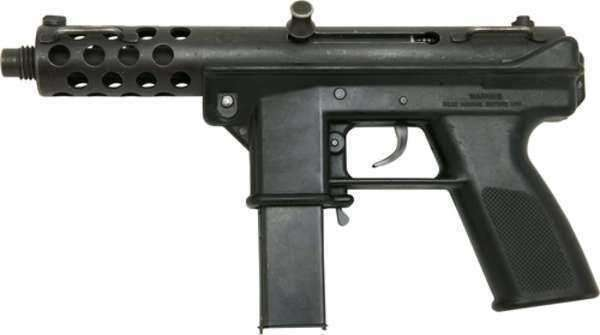
Speaking of long guns
Once you decide to power through all the roadblocks Hawaii has placed in your way to getting a handgun, you might as well go ahead and get a couple long guns while you’re at it. Luckily, the process for getting a long gun is not as bad as the one for handguns. Instead of getting punched in the face 10 times, it’s only about 6-8 punches. To buy a long gun, you must:- Be 21 or older;
- Provide ID; and
- Have a permit to acquire.
What about the children???
It’s never too early to start defending your freedom, even in anti-gun states like Hawaii. If you are under 18, you can use firearms in certain situations, but you must be 18 or older to own firearms, regardless of whether it is usable or not. If you are 16, or are under 16 but are accompanied by an adult, you can carry a rifle or shotgun while hunting or traveling to/from where you are hunting. Of course, you’ll need to have a hunting license if you are going hunting.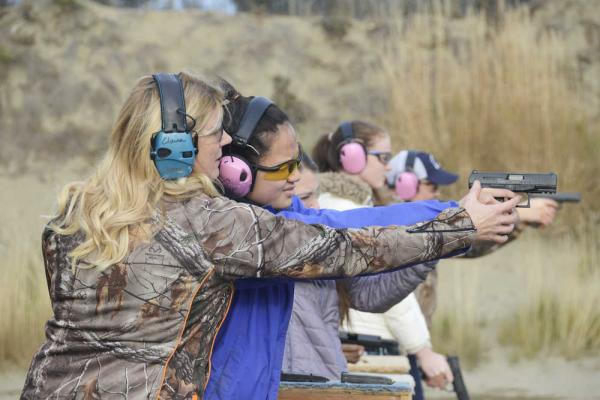
On target
If you are target shooting (i.e. at the range), you can also practice without having to get a permit first. Anyone under 18 can borrow a rifle or handgun for target practice at the range without a permit. If you are under 16, an adult will have to be present to accompany you the entire time. The firearm is only allowed to be used during the practice session though, and cannot be taken anywhere else or used outside of target practice.Carry on
Once you’ve got your firearms, you’ll need to be careful how you carry them around town. Open carry of handguns is technically allowed in Hawaii, however getting a permit to do so is nearly impossible. To get an open carry permit, you must:- Be 21 or older;
- Be a US citizen; and
- Provide evidence of a reason to fear for injury to person or property.
Concealed carry
Even more difficult to obtain than the open carry permit is the concealed carry permit. To qualify for a concealed carry permit, you must:- Be 21 or older;
- Be a US citizen; and
- Show reason to fear injury to your person or property.
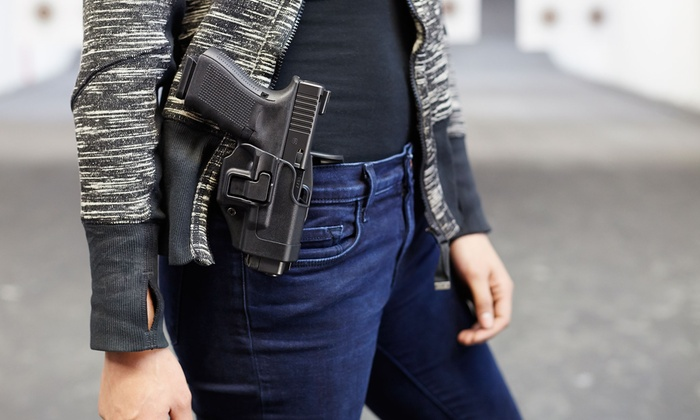
Movin’ on
Since you can’t actually carry your firearms anywhere except at the range and while hunting, you might as well be familiar with the laws on transporting your guns. When transporting your firearms and ammo, they must be in enclosed containers. At the very least, the firearm needs to be in a rigid, lockable container. However, if you choose to go with a commercial gun container, the only requirement is that it must completely enclose the gun. This includes any of those fancy Pelican cases everyone’s got, but also any commercially produced gun sock as well! And for those of you wonder what “unloaded” means, there must be no ammo in the chamber, cylinder, or magazine (if inserted in the firearm).Papers, please!
It wouldn’t be Hawaii without mandatory registration of all firearms! Every firearm in the state must be registered within 5 days of obtaining the firearm (i.e. from your local gun store), or 5 days of arrival in the state. That means, if you decide to move to the beautiful islands of Hawaii and bring your guns with you, you’ll need to make sure to register every single one of the guns with the chief of police of the county where you live or work. If you are just visiting Hawaii and brought your firearms with you, you will need to have temporary registration of your firearms. In addition, you must have:- A valid Hawaii hunting license or commercial or private shooting preserve permit;
- A written document indicating you have been invited to shoot on private land; or
- Written notification from a firing range or target shooting business indicating you will engage in target shooting.
But wait!
Like any good law, there’s always a loophole! Not all firearms have to be registered with the state. Only the fun ones. Registration is not required for:- Firearms that are designed to shoot loose black powder, or were manufactured before 1899;
- Any device not designed to fire or made incapable of being readily restored to a firing condition; or
- Unserviceable firearms and destructive devices registered with the ATF.
New in town
For those of you in the military who are PCSing to Hawaii, congrats! It’s a great place to be and you’ll never run out of things to do! The downside is you’ll have to jump through a couple hoops if you plan on bringing your personal firearms with you.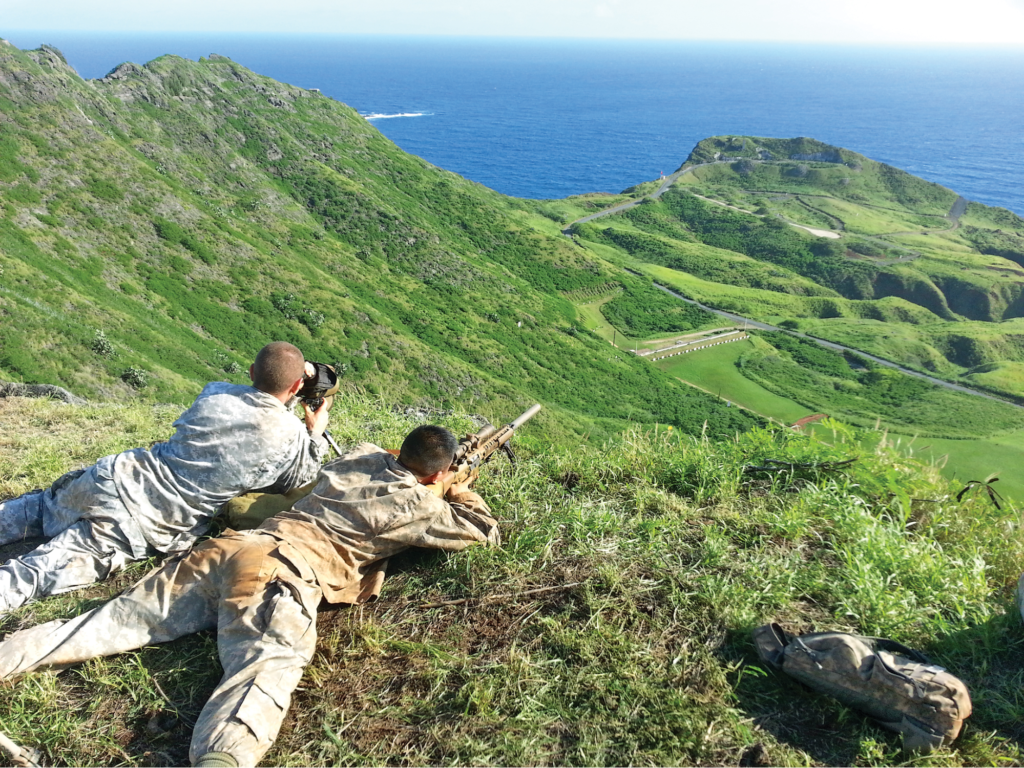
Parting shots
Before you run off to your local gun store and start picking out which handgun to buy, you’ll need to keep in mind that detachable pistol magazines are limited to 10 rounders. Even though that shiny new Glock in the display case can hold 17 rounds in a free state, Hawaii will only allow for 10 round magazines (because it’s…safer?). Once you’ve got all your firearms picked out and ready to go, don’t forget to feed them. Ammo can be purchased online, but it might not be worth the shipping costs to ship them all the way out to Hawaii, and you are probably better off just buying your ammo from your local gun store. Let them worry about the shipping issues, and you just worry about having enough ammo to practice with!Actually using your firearms
Aside from hunting, firearms are also pretty good at the whole self-defense thing. Surprisingly, Hawaii does allow for the use of deadly force in defending yourself. In certain situations that is.Protecting your castle
Under what is commonly referred to as the “Castle Doctrine”, Hawaii allows you to defend yourself with deadly force when you are in your home (aka your castle), or your workplace. You are justified in using deadly force if you believe it is necessary to protect against death, serious bodily injury, kidnapping, rape, or forcible sodomy. It is important to keep in mind, however, that you are not justified in defending yourself in this way if you are the one who provoked the situation. In other words, punching a guy and then shooting him once he decides to retaliate is not a justified use of deadly force.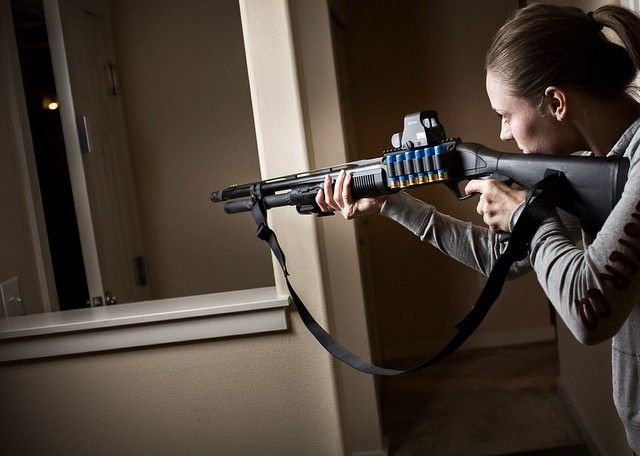
Standing your ground
While you are allowed to protect yourself when inside your home. When you are out on the town, that is a different matter completely. Use of deadly force is not justifiable if you know you can avoid using the deadly force by retreating with complete safety, surrendering an item demanded by the other person, or complying with a demand to not do something (that you aren’t legally required to do anyway). What this means is that if you are at a restaurant and run into a situation where you are threatened with serious bodily injury, you have a duty to retreat if it’s possible to do so safely, or to give in to the demands of the person threatening you with harm. Better to let the police handle the situation and avoid harm to yourself if possible. Of course, even with all these laws on self-defense, you should always use your best judgment to decide what type of force is appropriate. Just because you are allowed to use deadly force doesn’t mean you have to. Taking any life is always a serious decision, and may not always be necessary in order to end a threat to you and your loved ones.Aloha!
And that’s it! You’ve now got all the information you need to be a responsible gun owner in the state of Hawaii! Don’t forget to check out our CCW section if you’re curious about exactly just how hard it is to get a concealed carry permit in the state. For those of you with more realistic expectations, just focus on getting your hands on as many shiny new toys as you can and practice, practice, practice! You’ll also need to have a safe place to keep all your firearms too, though. Hawaii law considers a firearm owner liable for personal injury or property damage caused by the discharge of his firearm unless the firearm was stolen and reported stolen, or the discharge was legally justified. This means you want to keep your guns safely locked up so only you have access to them.